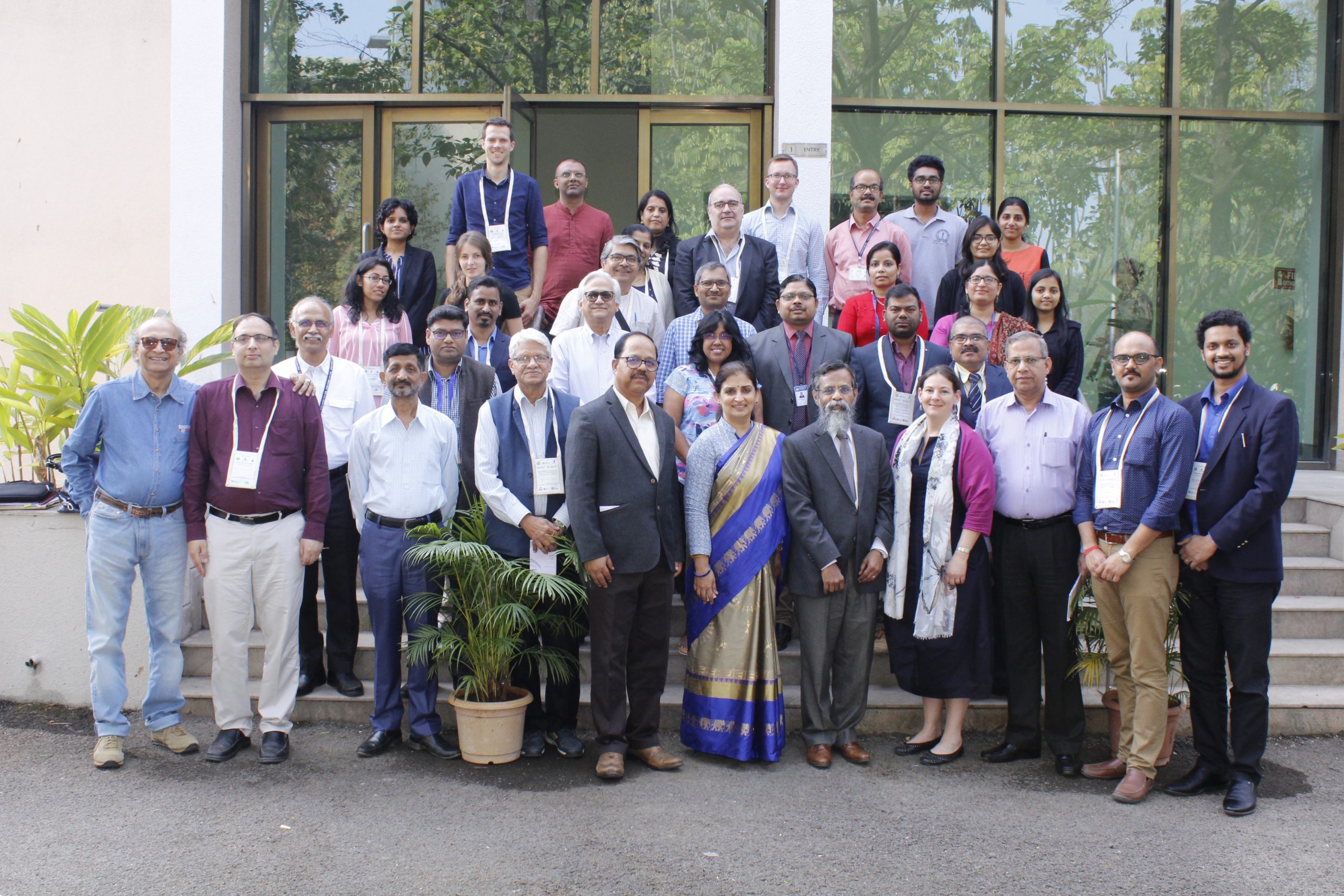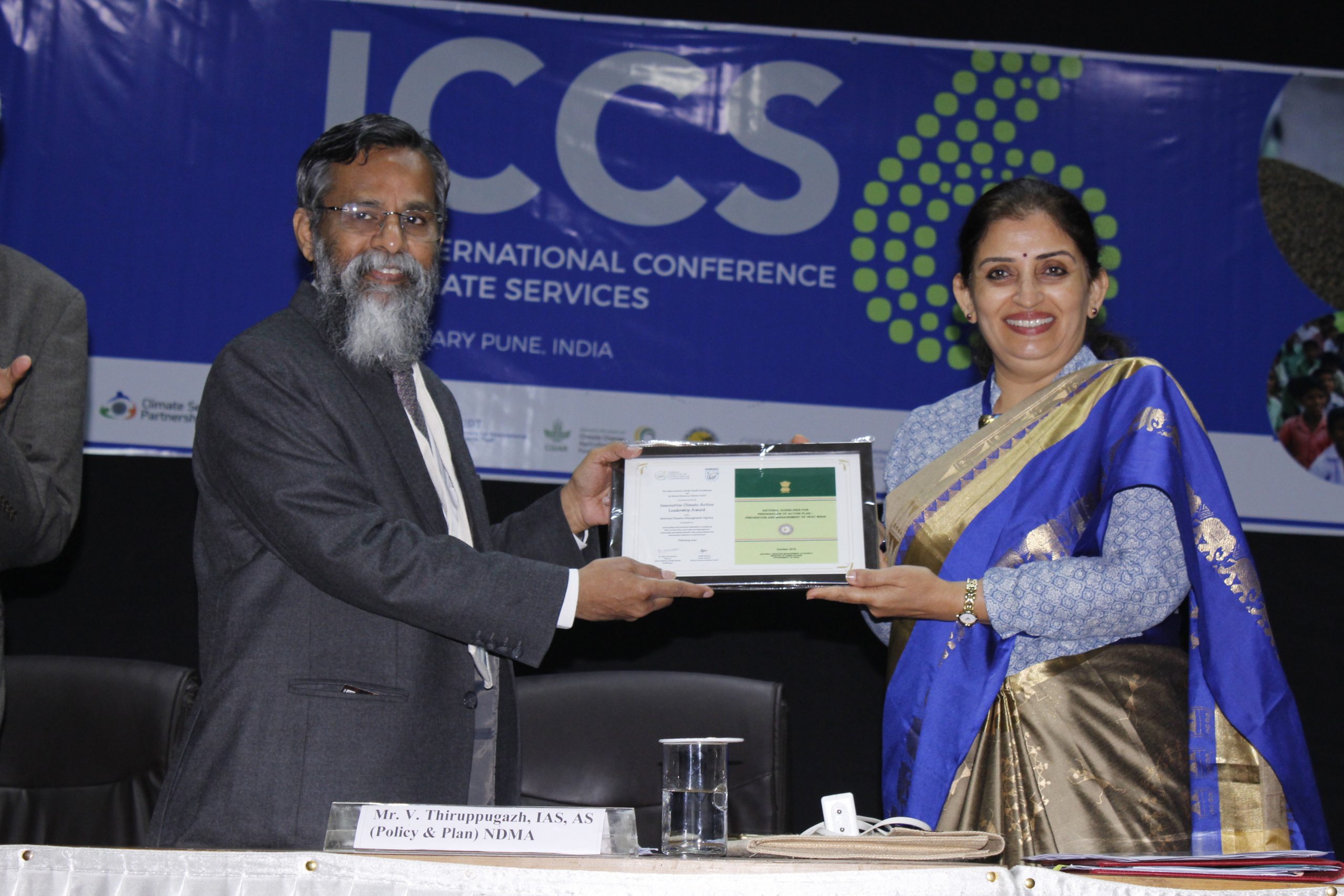South Asia Heat Health Summit
Published: February 17, 2020
The South Asia Heat Health Summit took place on 14 February 2020 in Pune, India, in conjunction with the International Conference on Climate Services 6. The Summit was co-organized by the Global Heat Health Information Network, the Indian Institute of Tropical Meteorology, IRADe, India Meteorological Department, Indian Ministry of Earth Sciences, WHO, WMO and IDRC to build capacity, promote sharing, and encourage evidence-based policy and actions to improve the management of extreme heat risks.
The regional summit brought together interdisciplinary experts and practitioners to share experience and concerns, learn from each other, identify new solutions and opportunities, and raise awareness of the urgent need to protect ourselves and communities from extreme heat in a warming world.

The Summit helped to:
- Strengthen the GHHIN network in the South Asia region by building connections and conversation between key actors to share what they’re working on, what’s working, and where attention is needed;
- Take stock of progress and good practices to address extreme heat risks and identify emerging issues;
- Build awareness of the urgent needs, challenges and opportunities surrounding heat health in the region;
- Identify concrete opportunities for formal projects and collaborations to reduce the impact of extreme heat in South Asia.
 Presentation of achievement award to Mr. V. Thiruppugazah, National Disaster Management Authority for the significant progress made for Heat Risk Prevention and Preparedness, given by Dr. Sujata Saunik, Indian Administrative Service.
Presentation of achievement award to Mr. V. Thiruppugazah, National Disaster Management Authority for the significant progress made for Heat Risk Prevention and Preparedness, given by Dr. Sujata Saunik, Indian Administrative Service.
Coverage
- Local Solutions Prepare South Asia for Searing Heat, NRDC Expert Blog
Presentations
Session 1: Scope/Purpose of meeting and South Asian context
- Linking Global and Local approaches to extreme heat protection, Joy Shumake-Guillemot, WMO / WHO Joint Office for Climate and Health
- Heat and Human Health, Akshay Kumar, National Programme on Climate Change and Human Health
- Heat Waves Possible Early Warning Methods, and Heat – Health Action Plan for Sri Lanka, Shiromani Jayawardena, Department of Meteorology
Session 2: Heat Risks and Predictions in South Asia – Focus on 2020 Heat Season
- Extreme Heat Outlook: A developmental product for the health sector, A.K. Sahai, Indian Institute of Tropical Meteorology
- Seasonal Temperature Forecast over India and South Asia, D. S. Pai, Indian Meterological Department
- Overview of the key issues, challenges, and policy/ action to address extreme heat risks, Lipika Nanda, Public Health Foundation of India (PHFI)
Session 3: Technical Session: Progress on Heat Health Action Plans and Interventions across Indian States
- Heat Action Plan Process and Implementation in India, Anup Kumar Srivastava, National Disaster Management Authority (NDMA), Government of India
- Heat and Human Health, Akshay Kumar, National Centre for Disease Control
- Heatwave Mitigation and Response in Maharashtra, Sujata Saunik, on behalf of Maharastra State
- Ahmedabad Heat Action Plan Development and Lessons, Abhiyant Tiwari
Session 4: Local Interventions in South Asia
- Heat Index: Possible HAP Action Threshold?, Kim Knowlton, Natural Resources Defense Council
- Video: Heat Index: Possible HAP Action Threshold?, Kim Knowlton, Natural Resource Defense Council
- Local Interventions in South Asia: Impact of heat stress on Livelihoods, productivity and Health, Rohit Magotra, IRADe
- Reducing the Risks from Extreme Heat in India, Shubhayu Saha, Rollins School of Public Health, Emory University
Session 5: Impacts, Hotspots and Information
- Urban Heat Hotspots- Case study of Rajkot City, India, Ajit Tyagi, Rohit Magotra, Mohit Kumar, Ananya Bhatia, Yashi Sharma, and Moumita Shaw
- Constraints in temperature thresholds determination in India, Abhiyant Tiwari
- Video: Estimating the Health Costs of Extreme Heat Exposures, Vijay Limaye, Natural Resource Defense Council
Session 6: Defining a Regional Network and Actions for Heat Health
- Regional actions – bringing it together to move forward, G Srinivasan, Regional Integrated Multi-hazard Early-warning System (RIMES) for Asia and Africa
- Example to learn from: U.S. Heat Health Planning, Preparedness, Response: The National Integrated Heat Health Information System, Hunter Jones, NOAA